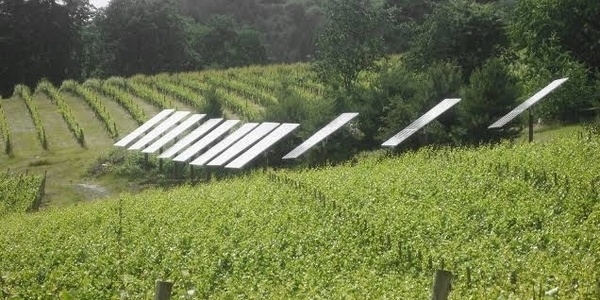Beej Utsav 2025: Celebrating the Power of Local Seeds and Traditional Wisdom
Did you know the word "Beej" means seed, the tiny, miraculous beginning of every harvest, every meal, and every memory in a farmer’s life? It’s more than just a grain; it's a story, a song, a tradition, and a promise. And just like people, seeds have identities too. Some are tough and wild, born to survive rocky hills. Some are delicate and fragrant, known only to a few elders who whisper their names like secrets of the earth.Every year, in the heart of India’s tribal belt where the states of Rajasthan, Madhya Pradesh, and Gujarat meet, villages come alive with color, dance, and celebration for a very special reason: to honor these living treasures in the Beej Utsav, or Seed Festival. What is Beej Utsav?Beej Utsav 2025 is a four-day celebration (June 24–26) of indigenous seeds, held across more than 60 village panchayats. The event saw participation from over 9,400 tribal people, especially women and children, who came together to celebrate not just seeds, but their identity, knowledge, and deep connection to the land. Organized by community-led groups like Krishi Evam Adivasi Swaraj Sangathan, Gram Swaraj Samooh, Saksham Samooh, and Bal Swaraj Samooh, with support from Vaagdhara, a voluntary group from Banswara, Rajasthan, the festival was an ode to self-reliant, eco-friendly, and culturally rooted farming. A Festival Rooted in Culture and CareImagine walking into a village decorated with seed mandalas, folk songs, and colorful displays of grains, pulses, fruits, and vegetables you've probably never heard of, like Doodh Mogar maize, Kali Kamod rice, Timru, Aakol, or Naari Bhaji (water spinach). These seeds are ancient, sacred, and often forgotten by the modern world. Children sat cross-legged learning how to make seed balls, while women, dressed in vibrant sarees, exchanged tips on seed storage and pest control without chemicals. There were plantation drives, Beej Samvads (seed dialogues), and biodiversity fairs, each telling stories of heritage and community strength. Awards like Beej Mitra (Seed Friend) and Beej Mata (Seed Mother) honored farmers who have protected and preserved indigenous varieties, often passing them down through generations like precious family heirlooms. Why Indigenous Seeds MatterIndigenous seeds are traditional, locally adapted varieties of crops that have been cultivated and preserved by farming communities over generations. They are naturally adaptable to local climates and pests, require minimal chemical inputs, and hold cultural, nutritional, and ecological significance, making them vital for sustainable and community-led agriculture. In today’s world, where most farmers rely heavily on market-bought hybrid seeds that are often expensive, chemically dependent, and not suited to local conditions, indigenous seeds offer a much-needed lifeline. These traditional seeds empower farmers with seed sovereignty, allowing them to decide what they grow, how they grow it, and when, free from corporate dependency. But beyond their agricultural value, they carry deep cultural identity. Varieties like Kali Kamod rice are not just food—they are part of rituals, festivals, and traditional cuisines that have been passed down for generations. As Jayesh Joshi, secretary of Vaagdhara, beautifully expressed during the festival, “Seeds should not just be considered the foundation of farming but treated as symbols of identity, life, nutrition, culture, and climate resilience in tribal traditions.”Reclaiming the Future, One Seed at a TimeIn a world facing climate change, soil depletion, and food insecurity, seeds are more powerful than we think. And in the tribal villages of India, communities are reminding the rest of the country and perhaps the world how to protect and respect it. Beej Utsav isn’t just a festival. It’s a movement. It’s a quiet revolution happening in the fields, kitchens, and hearts of farmers who are returning to the wisdom of their ancestors not out of nostalgia, but out of necessity. Because sometimes, to move forward, we must first look back and listen to the land. The seeds saved today are the stories told tomorrow. And in the hands of tribal farmers, these seeds are not just growing crops—they’re growing hope.

.jpg)
.jpg)
.jpg)


.jpg)
